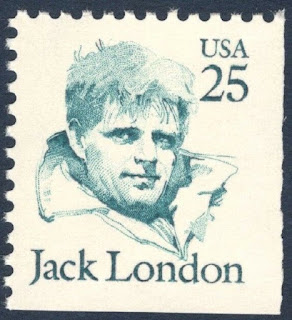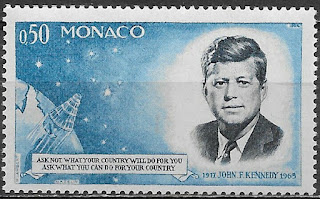Here are some events that happened on November 22nd. It could be an event or a person that died or was born on that day
1890 Born: Charles de Gaulle, French general and politician, 18th President of France (d. 1970)
Charles André Joseph Marie de Gaulle (22 November 1890 – 9 November 1970) was a French army officer and statesman who led the French Resistance against Nazi Germany in World War II and chaired the Provisional Government of the French Republic from 1944 to 1946 in order to reestablish democracy in France. In 1958, he came out of retirement when appointed President of the Council of Ministers by President René Coty. He was asked to rewrite the Constitution of France and founded the Fifth Republic after approval by referendum. He was elected President of France later that year, a position he was reelected to in 1965 and held until his resignation in 1969. He was the dominant figure of France during the early part of the Cold War era; his memory continues to influence French politics.
Born in Lille, he graduated from Saint-Cyr in 1912. He was a decorated officer of the First World War, wounded several times and later taken prisoner at Verdun. During the interwar period, he advocated mobile armoured divisions. During the German invasion of May 1940, he led an armoured division which counterattacked the invaders; he was then appointed Undersecretary for War. Refusing to accept his government's armistice with Germany, De Gaulle exhorted the French population to resist occupation and to continue the fight in his Appeal of 18 June. He led a government in exile and the Free French Forces against the Axis. Despite frosty relations with the United Kingdom and especially the United States, he emerged as the undisputed leader of the French Resistance, with Jean Moulin as first President of the National Council of the Resistance. He became head of the Provisional Government of the French Republic in June 1944, the interim government of France following its Liberation. As early as 1944, De Gaulle introduced a dirigiste economic policy, which included substantial state-directed control over a capitalist economy which was followed by 30 years of unprecedented growth, known as the Trente Glorieuses.
Although reelected President of the Republic in 1965, he appeared likely to lose power amid widespread protests by students and workers in May 1968, but survived the crisis and won an election with an increased majority in the National Assembly. De Gaulle resigned in 1969 after losing a referendum in which he proposed more decentralisation. He died a year later at his residence in Colombey-les-Deux-Églises, leaving his presidential memoirs unfinished. Many French political parties and figures claim a Gaullist legacy; many streets and monuments in France were dedicated to his memory after his death.
French Southern Territories and French stamps depicting Charles de Gaulle


1916 Died: Jack London, American novelist and journalist (b. 1876)
John Griffith London (born John Griffith Chaney; January 12, 1876 – November 22, 1916) was an American novelist, journalist, and social activist. A pioneer of commercial fiction and American magazines, he was one of the first American authors to become an international celebrity and earn a large fortune from writing. He was also an innovator in the genre that would later become known as science fiction.
His most famous works include The Call of the Wild and White Fang, both set in the Klondike Gold Rush, as well as the short stories "To Build a Fire", "An Odyssey of the North", and "Love of Life". He also wrote about the South Pacific in stories such as "The Pearls of Parlay", and "The Heathen".
London was part of the radical literary group "The Crowd" in San Francisco and a passionate advocate of unionization, workers' rights, socialism, and eugenics. He wrote several works dealing with these topics, such as his dystopian novel The Iron Heel, his non-fiction exposé The People of the Abyss, War of the Classes, and Before Adam.
US stamp depicting Jack London

1963 Died: John F. Kennedy, American lieutenant and politician, 35th President of the United States (b. 1917)
John Fitzgerald Kennedy (May 29, 1917 – November 22, 1963), often referred to by his initials JFK and Jack, was an American politician who served as the 35th president of the United States from January 1961 until his assassination in November 1963. Kennedy served at the height of the Cold War, and the majority of his work as president concerned relations with the Soviet Union and Cuba. A Democrat, Kennedy represented Massachusetts in the U.S. House of Representatives and Senate prior to becoming president.
Kennedy was born into a wealthy, political family in Brookline, Massachusetts. He graduated from Harvard University in 1940, before joining the U.S. Naval Reserve the following year. During World War II, he commanded a series of PT boats in the Pacific theater and earned the Navy and Marine Corps Medal for his service. After a brief stint in journalism, Kennedy represented a working-class Boston district in the U.S. House of Representatives from 1947 to 1953. He was subsequently elected to the U.S. Senate and served as the junior Senator from Massachusetts from 1953 to 1960. While in the Senate, Kennedy published his book, Profiles in Courage, which won a Pulitzer Prize. In the 1960 presidential election, he narrowly defeated Republican opponent Richard Nixon, who was the incumbent vice president.
Kennedy's administration included high tensions with communist states in the Cold War. As a result, he increased the number of American military advisers in South Vietnam. In April 1961, he authorized an attempt to overthrow the Cuban government of Fidel Castro in the Bay of Pigs Invasion. Kennedy authorized the Cuban Project in November 1961. He rejected Operation Northwoods (plans for false flag attacks to gain approval for a war against Cuba) in March 1962. However, his administration continued to plan for an invasion of Cuba in the summer of 1962. The following October, U.S. spy planes discovered Soviet missile bases had been deployed in Cuba; the resulting period of tensions, termed the Cuban Missile Crisis, nearly resulted in the breakout of a global thermonuclear conflict. The Strategic Hamlet Program began in Vietnam during his presidency. Domestically, Kennedy presided over the establishment of the Peace Corps and the continuation of the Apollo space program. He also supported the civil rights movement, but was only somewhat successful in passing his New Frontier domestic policies.
On November 22, 1963, he was assassinated in Dallas. Vice President Lyndon B. Johnson assumed the presidency upon Kennedy's death. Marxist and former U.S. Marine Lee Harvey Oswald was arrested for the state crime, but he was shot and killed by Jack Ruby two days later. The FBI and the Warren Commission both concluded Oswald had acted alone in the assassination, but various groups contested the Warren Report and believed that Kennedy was the victim of a conspiracy. After Kennedy's death, Congress enacted many of his proposals, including the Civil Rights Act and the Revenue Act of 1964. Kennedy ranks highly in polls of U.S. presidents with historians and the general public. His personal life has also been the focus of considerable sustained interest following public revelations in the 1970s of his chronic health ailments and extramarital affairs.
Stamps from the US, German and Monaco depicting John F. Kennedy
1963 Died: C. S. Lewis, British writer, critic and Christian apologist (b. 1898)
Clive Staples Lewis (29 November 1898 – 22 November 1963) was a British writer and lay theologian. He held academic positions in English literature at both Oxford University (Magdalen College, 1925–1954) and Cambridge University (Magdalene College, 1954–1963). He is best known for his works of fiction, especially The Screwtape Letters, The Chronicles of Narnia, and The Space Trilogy, and for his non-fiction Christian apologetics, such as Mere Christianity, Miracles, and The Problem of Pain.
Lewis and fellow novelist J. R. R. Tolkien were close friends. They both served on the English faculty at Oxford University and were active in the informal Oxford literary group known as the Inklings. According to Lewis's 1955 memoir Surprised by Joy, he was baptised in the Church of Ireland, but fell away from his faith during adolescence. Lewis returned to Anglicanism at the age of 32, owing to the influence of Tolkien and other friends, and he became an "ordinary layman of the Church of England". Lewis's faith profoundly affected his work, and his wartime radio broadcasts on the subject of Christianity brought him wide acclaim.
Lewis wrote more than 30 books which have been translated into more than 30 languages and have sold millions of copies. The books that make up The Chronicles of Narnia have sold the most and have been popularised on stage, TV, radio, and cinema. His philosophical writings are widely cited by Christian apologists from many denominations.
In 1956, Lewis married American writer Joy Davidman; she died of cancer four years later at the age of 45. Lewis died on 22 November 1963 from kidney failure, one week before his 65th birthday. In 2013, on the 50th anniversary of his death, Lewis was honoured with a memorial in Poets' Corner in Westminster Abbey.
Stamps depicting The Chronicles of Narnia










No comments:
Post a Comment